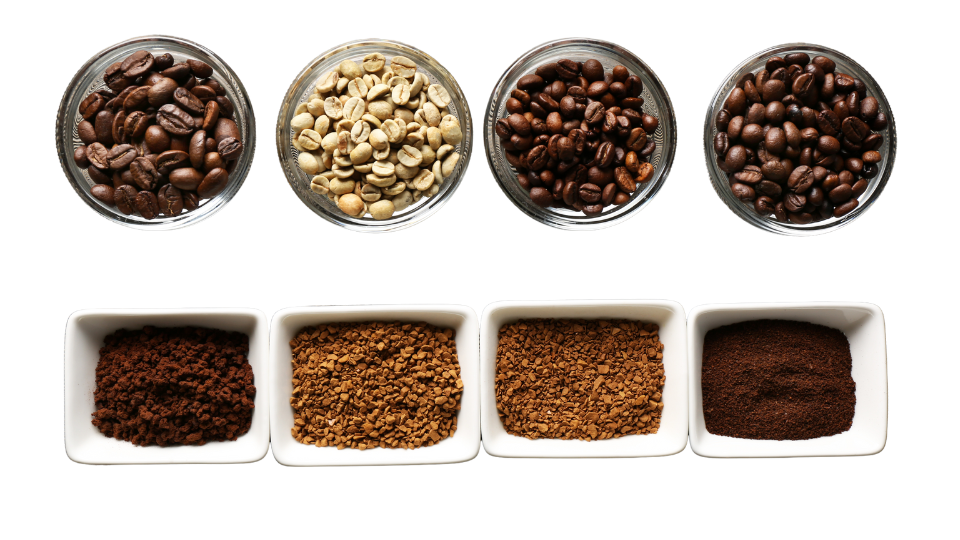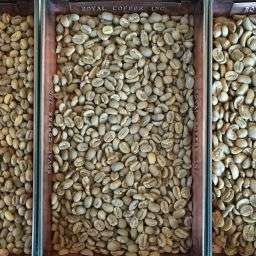
Australian coffee beans have garnered international acclaim for their exceptional quality and unique flavor profiles. Known for their meticulous cultivation and processing, these beans reflect Australia’s commitment to excellence in the coffee industry.
The nation’s coffee is celebrated for its rich, nuanced tastes, which are a result of the ideal growing conditions found in specific Australian regions.
Over the years, Australian coffee has seen a surge in global recognition, with connoisseurs and coffee enthusiasts around the world seeking out Australian beans for their distinct characteristics.
Ethically Sourced Beans
Australia’s coffee industry places a strong emphasis on ethical sourcing, with many brands committing to fair trade practices and sustainable farming.
For instance, Oxfam fair Coffee Beans Fairtrade Organic East Timor exemplifies this commitment, offering a product that not only tastes good but also supports a good cause. These beans are sourced from high-altitude farms in East Timor, ensuring a rich and sweet flavor with low acidity.
Read more about Instant Coffee Medium Roast.
Value-for-Money Options
Grinders Coffee Crema Roasted Beans are lauded for their excellent value-for-money.
Roasted in Melbourne, these beans are known for their rich flavor and aroma, rainforest alliance certification, and 100% Arabica content, making them a popular choice among coffee lovers looking for quality without a hefty price tag.
Read more about Is Blonde Roast Coffee Stronger.
Best Single-Origin Coffee Beans
The market for single-origin coffee beans is well-catered in Australia, with brands like Oxfam fair offering premium, organic, and fairtrade beans from East Timor.
These beans are celebrated for their distinct flavor, which sets them apart from other offerings on the market.
Roast Preferences
Australian coffee beans come in a variety of roasts, from light to dark, catering to diverse consumer preferences.
Dark roasts are known for their strong, bold flavor and higher caffeine content, while light roasts offer a milder, more nuanced taste. Medium roasts strike a balance between the two, offering a moderate flavor intensity.
The choice of roast is highly personal, influenced by individual taste preferences. Consumers are encouraged to explore different roast levels to discover what best suits their palate.
By focusing on quality, ethical sourcing, and catering to a variety of taste preferences, Australia’s coffee industry continues to make a significant impact both locally and globally.
Read more about Is Colombian Coffee Dark Roast.
Growing Australian Coffee Beans
The journey of coffee farming in Australia is a story of innovation, resilience, and cultural integration. Initially, coffee planting in Australia began in the 19th century, but it wasn’t until the post-World War II era that the industry began to take shape.
The influx of Italian immigrants during the early 1930s brought with them a rich coffee culture, including espresso-style brewing, which has since become a hallmark of Australian coffee culture.
This period marked the beginning of a transformative phase in the Australian coffee scene, with the espresso machine becoming a symbol of quality coffee brewing across the continent.
Australia boasts several key regions for coffee growing, each with its unique climatic conditions and soil types, conducive to coffee cultivation.
The southeast region of Queensland, northeast New South Wales, and the Atherton Tableland in northern Queensland are among the most notable. These regions offer the perfect combination of elevation and climate, making them ideal for growing high-quality Arabica coffee beans.
The cooler climates and rich soils in these areas contribute to the production of coffee with distinct flavor profiles, highly prized both locally and internationally.
The varieties of Arabica coffee grown in Australia include Bourbon from the Reunion Islands, Typica from Brazil, and Caturra from Colombia.
These varieties are known for their low caffeine content and sweet, nutty/fruity flavor profiles, making Australian coffee unique in the global market. The dedication to growing such varieties underlines Australia’s commitment to quality and diversity in its coffee production.
Read more about Is Dark Roast Coffee Healthier.
Australian Coffee Culture and Consumption
The coffee culture in Australia has evolved significantly over the years, deeply influenced by Italian immigrants who introduced espresso-style brewing in the early 20th century.
This method quickly became popular, laying the foundation for a vibrant coffee culture that values artisanal, premium coffee. Today, espresso brewing remains the dominant style, reflecting Australians’ preference for strong, richly flavored coffee.
Australia’s coffee culture extends beyond its borders, with Australian coffee shops and cafes opening in major cities around the world, such as New York.
This global expansion is a testament to the country’s innovative approach to coffee brewing and its commitment to quality. Australian coffee establishments are often characterized by their sophisticated ambiance, expert baristas, and an emphasis on espresso-based drinks, setting a high standard for coffee excellence worldwide.
The influence of Australian coffee culture on the global scene underscores the country’s significant contribution to the world of coffee.
Through the export of its unique coffee flavors and brewing techniques, Australia has positioned itself as a leader in the global coffee industry, championing a distinct coffee experience that resonates with connoisseurs and casual drinkers alike.
Read more about Is Dark Roast Coffee Less Acidic.
Ethical and Sustainable Practices
Ethically-sourced coffee has become increasingly important in today’s market, emphasizing fair trade, organic, and sustainable farming practices. These practices ensure that coffee production is done in a way that is fair to farmers and beneficial to the environment.
Fair trade certification signifies that the coffee has been sourced in a manner that provides fair compensation to the coffee farmers, promoting community development and economic stability.
Organic certification, on the other hand, ensures that the coffee is grown without synthetic pesticides or fertilizers, emphasizing environmental health. Sustainable farming practices further ensure the long-term viability of the coffee-producing land through conservation of resources and biodiversity.
Certifications play a crucial role in guiding consumer choices, offering a way to identify coffee that aligns with ethical and sustainable values.
For consumers, these certifications mean supporting farming practices that are better for the environment and the people involved in coffee production. For farmers, obtaining these certifications can lead to better market access and prices, contributing to improved livelihoods.
Read more about Is Dark Roast Coffee More Bitter.
Challenges and Future of Australian Coffee
The Australian coffee industry faces several challenges, including the impacts of climate change and the need for innovation in coffee varieties and farming practices.
Climate change poses a significant threat to coffee production, necessitating the development of new, more resilient coffee varieties and adaptation of farming practices to ensure sustainability.
Despite these challenges, there is significant potential for Australia to become a more influential player in the global coffee market.
Through continued innovation, investment in sustainable practices, and a focus on quality, Australia has the opportunity to expand its coffee production and export, contributing to the global demand for premium coffee.
FAQs
What are the best Australian coffee beans? The best Australian coffee beans are known for their quality and unique flavor profiles, often featuring ethically sourced and single-origin varieties.
How do I choose the right type of roast? Choosing the right type of roast depends on personal preference, with options ranging from light to dark roasts offering different flavor intensities.
What is the significance of coffee certifications? Coffee certifications, such as fair trade and organic, signify adherence to ethical and sustainable farming practices, ensuring quality and sustainability.
Conclusion
The Australian coffee industry, celebrated for its premium beans and robust coffee culture, is poised for further growth and global influence. Ethical sourcing and sustainable practices underline the industry’s commitment to quality and responsibility.
Despite facing challenges like climate change, Australia’s coffee sector continues to innovate, aiming to meet the increasing global demand for specialty coffee.
The future of Australian coffee beans looks promising, with the potential to significantly impact the global coffee culture, emphasizing the importance of quality, sustainability, and ethical practices in coffee production








